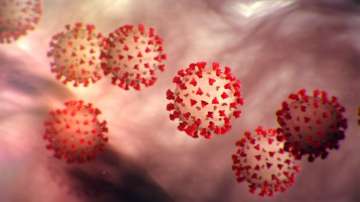The Delta variant of the SARS-CoV-2 virus is becoming quite a cause for concern with its mutation! The World Health Organisation tagged B.1.617.2 strain as the 'Delta' variant of COVID19, that identified as one of the drivers of the second wave of coronavirus infections. Now, this variant further mutated to form the 'Delta plus' or 'AY.1' variant. So far, cases of the Delta Plus variant have been reported in four states: Maharashtra, Madhya Pradesh, Kerala and Karnataka. The Union Health Ministry had earlier said that Delta Plus is not a 'variant of concern' right now as it has not been conclusively proved that the strain poses 'adverse consequences' to humanity by increase in transmissibility and severity.
"Delta Plus is a variant of interest, but not a variant of concern. It has not yet been classified as a variant of concern, in which there is adverse consequence to humanity. As per data available in the public domain, this variant nullifies the use of monoclonal antibody. We will scientifically study and learn more about this variant," NITI Aayog's Member Health, Dr VK Paul, said at a Health Ministry press meet.
As for how widespread is Delta plus is, enough samples have not been genome-sequenced to know. Only about 200 sequences were detected across the globe and just around 30 in India. Initial data suggests that the Delta plus variant shows signs of resistance against the monoclonal antibody cocktail treatment. This treatment for Covid-19 was recently authorised by the Central Drugs Standard Control Organisation (CDSCO).
Where was Delta Plus first detected?
The first Delta Plus variant was seen in Europe in March this year. It was brought into the public domain only on June 13. According to scientists, the Delta variant (B.1.617.2) has further mutated to form the Delta Plus variant.
In India, the first case of Delta plus variant was reported in a 65-year-old woman from Bhopal, who had recovered from COVID-19 under home isolation and was also administered two doses of the vaccine. Her samples were collected on May 23 and reports from the National Central for Disease Control (NCDC) on June 16 stated she tested positive for the variant.
What do we know so far?
Based on the reports, Delta Plus is considered highly infectious. Delta plus variant shows signs of resistance against the monoclonal antibody cocktail treatments.
Health experts, however, have warned that the Delta Plus, may unleash a third wave in the coming months, as it could possibly circumvent the body’s immune system.
Will Delta Plus be more transmissible?
Transmissibility of new variant is a crucial factor. Immunologist Vineeta Bal said the Delta plus variant's resistance to monoclonal antibody cocktail is not an indication of higher virulence or severity. Bal is a guest faculty at Pune's Indian Institute of Science Education and Research.
"How transmissible this new variant is will be a crucial factor to determine its rapid spread or otherwise," Vineeta Bal told PTI. She added, "Thus, in individuals catching infection with the new variant, it may not be a matter worth worrying."
Also Read: COVID19: Common symptoms including dry cough, sore throat you may experience while recovering
